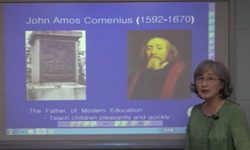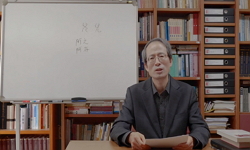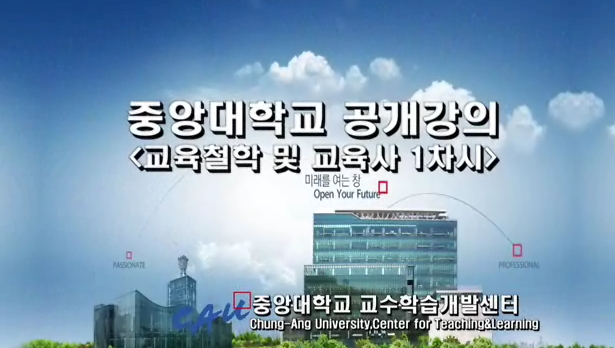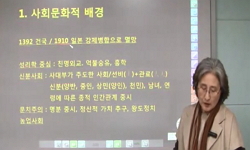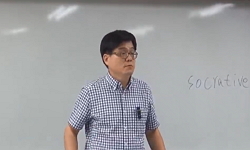Park Chi-Won (1737 A. D. -1805 A. D.), one of the most erudite scholars of the Silhak school (neo-confucianism), established a practical and positive school tradition in order to build up a better society. He also criticized severely the corruption in...
http://chineseinput.net/에서 pinyin(병음)방식으로 중국어를 변환할 수 있습니다.
변환된 중국어를 복사하여 사용하시면 됩니다.
- 中文 을 입력하시려면 zhongwen을 입력하시고 space를누르시면됩니다.
- 北京 을 입력하시려면 beijing을 입력하시고 space를 누르시면 됩니다.
https://www.riss.kr/link?id=T723811
- 저자
-
발행사항
광주: 全南大學校, 1989
-
학위논문사항
학위논문(석사) -- 全南大學校 敎育大學院 , 敎育學科 敎育行政專攻 , 1989
-
발행연도
1989
-
작성언어
한국어
- 주제어
-
KDC
370.1911 판사항(3)
-
DDC
370.1 판사항(19)
-
발행국(도시)
전라남도
-
형태사항
iv,59장; 26cm
- 소장기관
-
0
상세조회 -
0
다운로드
부가정보
다국어 초록 (Multilingual Abstract)
Park Chi-Won (1737 A. D. -1805 A. D.), one of the most erudite scholars of the Silhak school (neo-confucianism), established a practical and positive school tradition in order to build up a better society. He also criticized severely the corruption in the feudal regime during the Yi dynasty in the 18th century.
His thought can be summarized as follows:
First, his Silhak thought was based on Confucianism, and he made much of seeking for the realization of true virtue.
Second, as a scholar of the Pukhak school which laid great emphasis on the concept that welfare is gained after utilization, Park Chi-Won maintained that the school and economic organization of his time had to be reformed by means of receiving and absorbing the advanced foreign civilization.
Third, his interest in astronomy and geography as an essential part of Western natural science led his way of thinking to become rational and scientific.
Fourth, even though he was born in the aristocratic class (the Korean nobility), he not only criticized severely the corruption of the nobility society, but also attempted to enlighten the people.
Park's educational theory, which he contributed to Silhak thought, can be summarized as follows.
First, if we judge his educational theory from the view of educational objectives and systems, his view of evaluating the person is based on the Silhak thought of the truth studied from substance, which gave birth to his educational idea of 'Improving living conditions and increasing the wealth at the people and his educational objective of 'realization of true virtue' .
He sought for such types of the educated person as an economical capable person possessing morality as well as the rational and scientific way of thinking, a humanist who attaches great importance to human equality, and a nationalist who holds the consciousness of his national identity. He also stressed that a regional education should be fostered through his 'theory of flourishing local schools' and that the curriculum was important.
Second, he emphasized transforming the educational contents of the past into those at Silhak thought, thereupon formulating a theory of reforming the educational curriculum through such a transformation. Even Korea was importing the revised civilization at the Ch`ing(淸) dynasty, he paid much attention to Korea's' uniqueness based on its educational system along with the consciousness of its national identity. Nearly 200 years ago he accused the Sungri scholars(性理, who studied Chinese Confucianism) of reading impracticable books such as Yulha-ilgi, Kwanong-socho and claiming to develop hundreds of new technological ideas.
In conclusion, a connection of Park's educational thought to modern education is attempted with the following suggestions.
First, Korea must do away with its sense of reliance upon the 'great', but on the other hand restore self-identity and objectivity to educational study so to promote a consciousness of Korea's national identity.
Second, Korea must discover again the 'image of the refined soˇnbi' who holds virtue and sincerity, considering that there are not a few moderns who are egoistic, opportunistic, and hasty in their decisions.
Third, education for the pursuit of knowledge must be transformed into education for the pursuit of wisdom. In other words, we must eliminate dehumanization from the cramming system of education aiming at entrance examination and develop an ideal system of education which enables us to respect our personalities individually. Here comes the historical lesson that the failure of education causes the destruction of a country while a sound system brings about the development of the country.
목차 (Table of Contents)
- 목차
- ABSTRACT = i
- I. 緖論 = 1
- 1. 硏究의 必要性 = 1
- 2. 硏究의 目的 = 2
- 목차
- ABSTRACT = i
- I. 緖論 = 1
- 1. 硏究의 必要性 = 1
- 2. 硏究의 目的 = 2
- 3. 硏究의 方法 및 制限點 = 3
- II. 時代的 背景 = 5
- 1. 封建社會의 動搖와 朱子學의 空論化 = 5
- 2. 代案的 理論의 摸索 : 實學派의 登場 = 8
- III. 朴趾源의 實學思想 = 11
- 1. 經學 思想 = 11
- 2. 科學主義 思想 = 14
- 3. 北學論 = 18
- 4. 社會 改革論 = 20
- IV. 敎育 目的 및 制度論 = 23
- 1. 人間觀 = 23
- 2. 敎育的 人間像 = 29
- 3. 地方 興學論 = 36
- V. 敎育 內容論 = 41
- 1. 敎育 內容의 實學的 轉換 = 41
- 2. 敎育課程 改革論 = 45
- VI. 結論 = 51
- 參考文獻 = 57





